Cash vs. Credit Card: Which is Better in an Emergency?
When there’s an emergency, you don’t always have a lot of time to react. In times of emergency, you’ll need access to money, whether that’s credit or cash. The question often arises, cash vs. credit card: Which is better in an emergency?! I have my thoughts, but I do think both have their place in emergency situations. Types of Emergency Preparedness
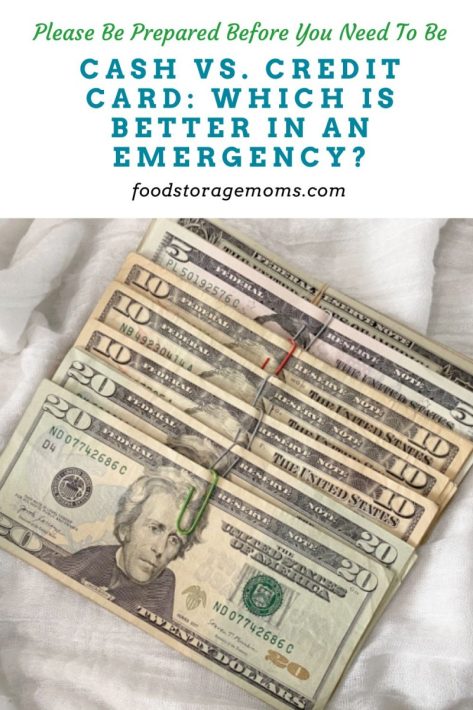
The Role of Cash in Emergencies
I’m a huge advocate for having cash in emergencies. However, it just seems to work out that you never have enough cash when you need it most. I would recommend keeping cash on hand just for emergencies. The role of cash in emergencies is priceless and you won’t understand that until you need it most.
Immediate Accessibility
Cash is universally accepted and readily accessible, making it a popular choice during emergencies. Whether it’s a power outage, natural disaster, or technical glitch that affects payment systems, having cash assures you that you can make purchases without relying on electronic transactions.
Due to the challenges of passing on a virus through the use of currency, some businesses now restrict the use of cash at their facilities. They also don’t want a lot of cash around due to the uptick in crime in certain areas.
Budgetary Control
Using cash for emergency expenses allows for better control. With physical currency, you will be able to SEE your spending limit, making it easier to manage your finances during stressful situations. When the cash is gone, that’s your signal to curb any further spending, unless you have no choice.
Cash Offers Privacy
Cash transactions offer a level of privacy that credit card transactions don’t provide. In some emergency situations, maintaining your privacy might be a concern. Using cash can help make sure that your personal information remains private. The 5 Basic Things You Need to Survive
There are all sorts of scams running right now where crooks are trying to hack into your computer and steal passwords and account numbers. Stay alert and approach any request for checking acount or other bank account or credit card information with caution. If you have any questions, reach out to your bank or credit card companies.
Risks Involved
While cash has its perks, there are risks associated with relying solely on cash during emergencies.
- The amount of cash you have on hand may not be sufficient to meet all emergency expenses.
- If your cash is lost or stolen, there is no way to recover it. This can be a setback during already challenging times.
- Unlike credit card transactions that leave behind a digital trail, cash transactions lack accountability in most cases. This can make it difficult to track expenses or claim refunds for faulty products or services. If you like a paper trail, ask for receipts even when making purchases with cash.
The Advantages of Credit Cards in Emergencies
Instant Access to Funds
Credit cards provide instant access to funds during emergencies, offering an immediate solution for unexpected expenses. With a credit card, you don’t have to worry about the amount of cash you have on hand or whether ATMs are functioning. Of course, we must assume there is not a power outage. Why People Wait Until the Last Minute to Prep for Emergencies
Your Credit Card Does Have a Credit Limit
Your credit card does have a credit limit that’s usually established by your credit score or rating, how you’ve handled credit card debt and personal loan payments in the past, and even how you’ve paid on your mortgage. If you have good credit, you should qualify for a higher limit and possibly a lower rate. The key is not to let credit card debt get out of hand and to make it a habit to pay it off monthly if possible.
Credit cards usually have high interest rates as compared to other lines of credit. High-interest debt can prove to be a real burden if not handled properly. Most card companies don’t start charging their interest charges during the first 30 days for any individual charge, but once you’re into the next month they’ll accrue interest.
A few years ago I interviewed a few grocery store managers and asked what would happen if their power went out. The ones I talked to all had backup generators. But, here’s something I learned from one store. They were authorized to take debit cards, credit cards, and cash through the checkouts even if the power wasn’t working. They could take up to four thousand transactions during the workday without authorization on debit cards or credit cards. Interesting, right?
The best thing is to be prepared with food and water in your homes, rather than venturing out to a grocery store during or after a disaster.
Wider Acceptance
Credit cards are widely accepted by most merchants, making them a convenient payment option during emergencies. Whether you need to purchase groceries or pay for an unexpected medical bill, car repairs, home repair, or even some payments for your utilities, credit cards can be used in a variety of situations. What To Do If There’s No Gas in a Hurricane
Emergency Services and Assistance
In certain emergencies, such as medical emergencies or travel disruptions, credit cards often come with additional benefits. These may include emergency assistance services, trip cancellation insurance, car rental insurance, or access to roadside assistance, providing you with valuable support during challenging times. Be Prepared for a Hurricane + Free Printable Emergency Binder Contents
Record Keeping and Fraud Protection
One of the major advantages of credit cards is the ability to keep a record of transactions. This can prove important when managing your finances, during and after an emergency. Credit cards can also help provide fraud protection measures, offering peace of mind in case someone steals your credit card itself or gains access to your card number. Pros and Cons of a Human Proof Fence
Be aware that debit cards typically don’t provide the same protections, don’t always provide reimbursement for fraudulent charges, and take a longer time for reimbursement if they are approved.
What’s the happy medium between cash and a credit card?
A Balanced Approach
The ideal approach to handling emergencies is to have a decent balance between cash and credit cards. Using both cash and a card in an emergency is a good idea. Some credit card companies offer a lower “introductory APR” (annual percentage rate) when you open an account and make balance transfers from another card. You can also find cards where you earn points or rewards based on categories or size of purchases. Be careful with these cards since they may end up with a higher interest rate, a significant annual fee, transaction fees for excessive use, or put you into a variable APR that can go higher than you ever expect.
Emergency Fund
Having an emergency fund in cash is a practice all preppers should participate in and be part of your family’s emergency plan. This fund should be easily accessible and should be able to unexpected expenses that may arise during emergencies. How to Save the Most Money on Gas
As preppers, we often think of emergencies in the context of natural disasters only. In reality, many other things can cause us to go into emergency mode. That could include job loss, emergency swings in income if paid on commission, car accidents, or other medical situations.
Communication and Preparedness
Before an emergency occurs, it’s essential to communicate with your bank or credit card issuer to understand their emergency protocols. This may include setting up alerts, ensuring access to online banking, or having a backup card available. Communication Options for Your Family During a Disaster
Prioritize Safety
In any emergency situation, personal safety should always be the top priority. While cash and credit cards are crucial, they should never compromise your safety. Always do everything out of caution and make sure your family and yourself are safe. Is Your Neighborhood Prepared?
More Tips
- How to Survive in a Cashless Society
- Cash Stash: Standby for Emergencies
- Prepping in 2023: Starting with the Basics
Final Word
When it comes to emergencies, the choice between cash and credit cards is not a one-size-fits-all solution. Both options have their advantages and disadvantages. I would love to hear your opinions on cash vs. credit cards. Which one is your family more likely to use in an emergency? May God Bless this World, Linda
Copyright Images: Cash and Credit Cards AdobeStock_415223158 By Hanson,

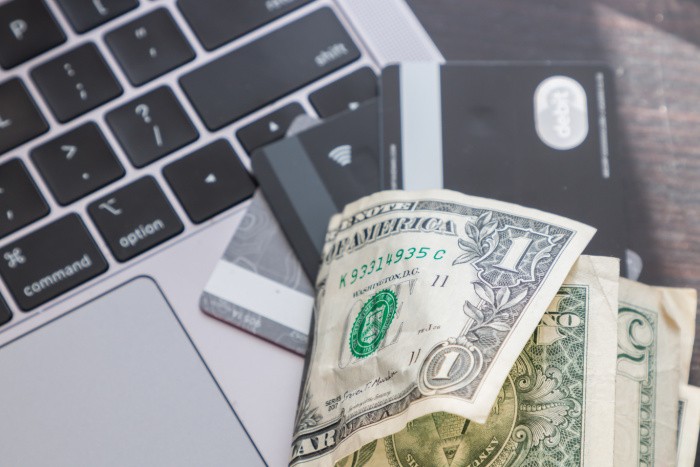

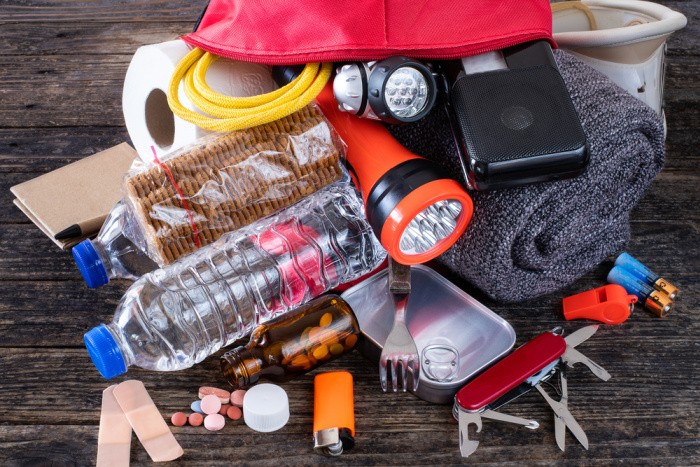
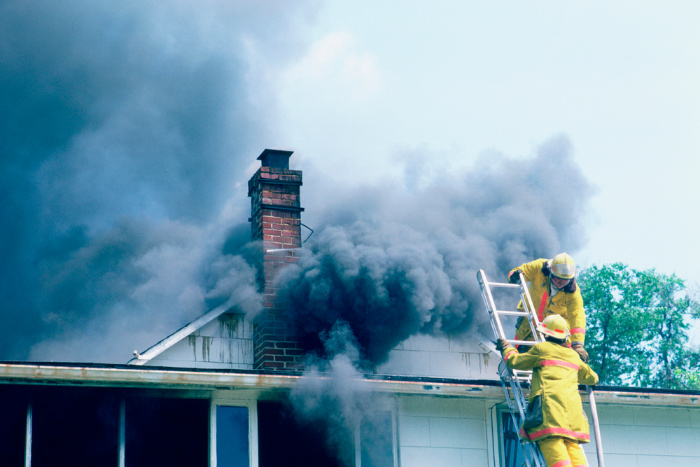
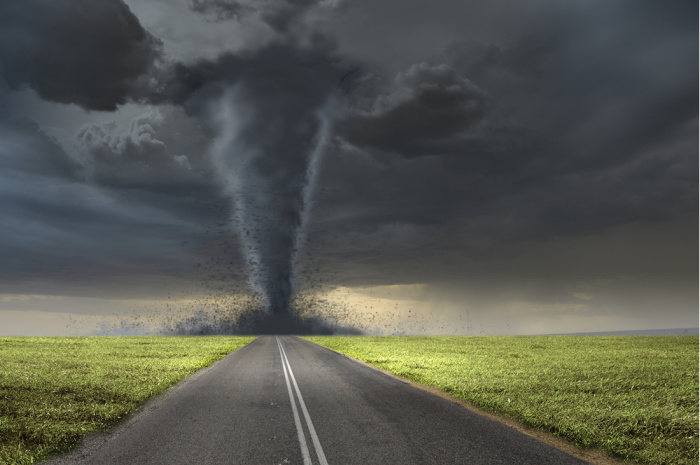

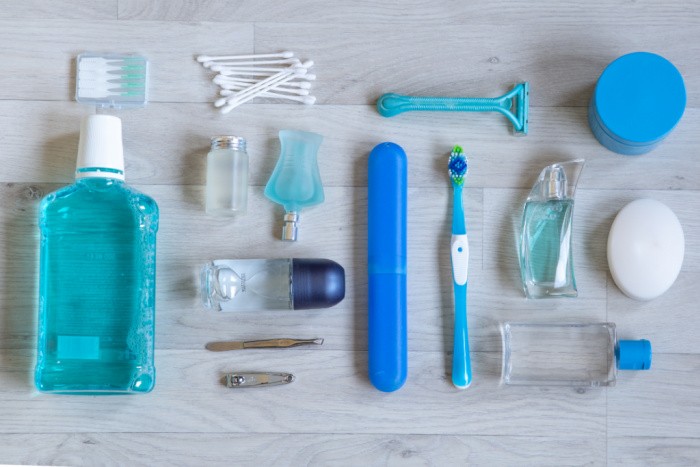
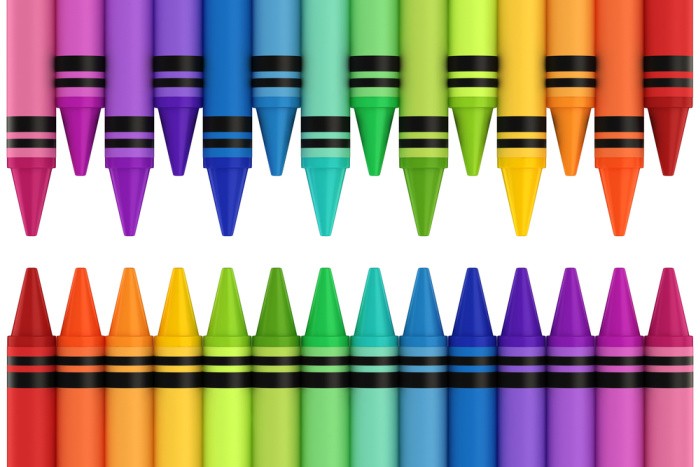







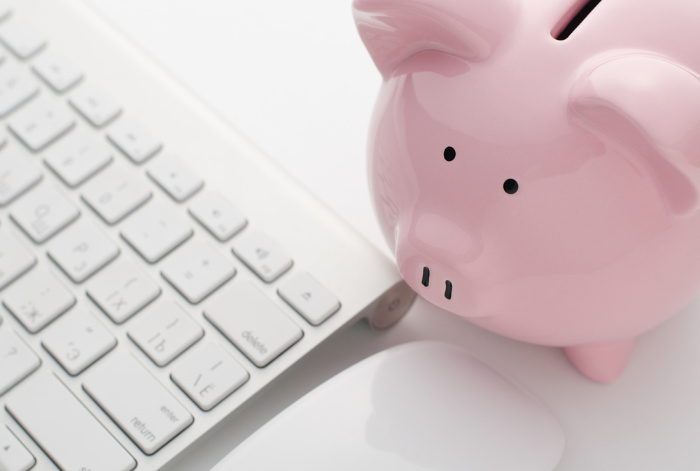

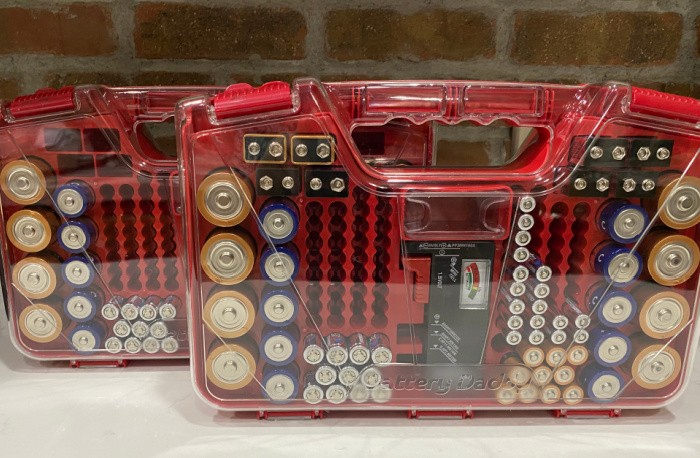



Linda,
What an excellent and informative article. I agree with you that it’s best to have both cash and credit cards on hand in an emergency. I had no idea grocery stores could accept credit cards, even if the grid fails, by using their backup generators for power. Good to know.
Hi Ray, every grocery store is different. The store I was talking about was Harmon’s Grocery Store. Most of the other stores had generators but they would lock the doors if they lost power and so would banks. It’s great they have generators but the food would go fast, I would not want to be in line to get some milk or bread, if you know what I mean. Harmon’s even has generators they can ship up north or down south if needed. I learned a lot just by asking. Linda
I agree that cash is king however it faces issues in everyday use with many places like restaurants and gas stations going digital only. Many are starting to not even take cash.
That being said cash will always remain viable as long as there is product to sell and government backing it. After that is barter. Much like cash keep that barter in smaller increments. In an emergency you show up with $100 bill and only want $20 in the product you might not get change. Same with barter. Don’t show up with a gold coin or a $2K rifle wanting to exchange for $100 of groceries and think you’ll get change back. Instead have silver and a Taurus pistol or ammo.
Always remember that A Good Deal Is Where Both Parties Walk Away Happy regardless of payment type, cost etc.
HI Matt, oh yeah, great comment, “Always remember that A Good Deal Is Where Both Parties Walk Away Happy regardless of payment type, cost etc.” I love it. Linda
Matt,
In my bartering experience a good deal is when both parties walk away grousing they paid too much, but basically satisfied the deal was fair. 🙂
HI Ray, I like that statement, it makes sense. Linda
Here in my town I asked one of the city employees if they had a backup plan for keeping us supplied with water in a grid down scenario. He said all 15 wells that supply our town have backup diesel generators and two weeks supply of fuel.
No idea what their plan is if the power is out for more than two weeks. The wells are too deep for hand pumps. I not crazy about living in a place where I don’t have control over my water supply, but with Jane’s health I can’t afford a $30,000 gamble on a well–that might or might not come in–and that might or might not be potable.
One of my MAG members has a well, just two homes from me so I know I can get at least some water from him, but again I’ll be depending on someone else and water is life.
Hi Ray, I was told the same thing in Southern Utah, they had two weeks of fuel to use in a generator to keep the water and sewer plants working. The good thing they said I was higher up the hill when the power goes and and the sewage would affect those down below me when they lose power. Hopefully, your neighbors well doesn’t go dry. I’m reading more and more about wells and aquifers that have had water are drying up. So those who think they may have water on some land with a aquifer nearby, may want to research and see if it is still viable. Our water supply is in deep trouble, no one wants to believe it, but it’s true based on my research. Linda
Linda,
I thank God we’re on septic and I don’t have to worry about neighbors causing a backup.
Our water supply is in deep trouble. Lake Mead, for example, is down so low they had to install a second, much lower, “straw” to keep the water flowing to Las Vegas. We had a wet winter/spring but that only raised the water level by a few inches. It’s down more than 85 feet from when it was full. It would take several very wet years to replenish it.
HI Ray, yeah I heard about Lake Mead, I grew up in Las Vegas, that’s why I wanted to move from Southern Utah, water levels are too low for me. Linda
I no longer use my cc–cash is so much easier. Today, new account with a different propane delivery.
The rewards do not add up for me to fool with===I do send enough for a year subscription for Discovery+…who wants to write a $7 check each month??
Hi JajJay, you are so right! Linda
Dear JayJay, I too use cash to buy my propane. I get a discount for using cash (or check or money order) versus using a debit or credit card. I’m ready to do my pre-buy of 550 gallons which I will drop off at my suppliers office. Normally, I just leave an envelope with cash under the hood, which my city friends find ‘wild’. Giggle, I doubt there are thieves running around in the country checking under propane tanks looking for cash. My propane supplier is a locally owned company and only 15 miles away, so no biggie especially since its on the way to one of my shopping centers. The other propane companies also give a discount for cash or money order but no close by offices to drop off the money. I’d be leery about sending a money order thru the mail and I haven’t ordered check blanks for almost 2 decades. Eek, while I liked my pre-buy price of $1.74/gal, I just learned that down in SD/Iowa, my relatives just pre-bought at $1.05!!!
HI Wendy, wow that’s a big difference in price!! Great comment! Linda
My husband and I always keep cash on us for emergencies. We have credit cards to use, but if needed, cash is better and no higher than 20s.
HI Carla, I’m with you no denomination higher than a 20! Stay safe, Linda